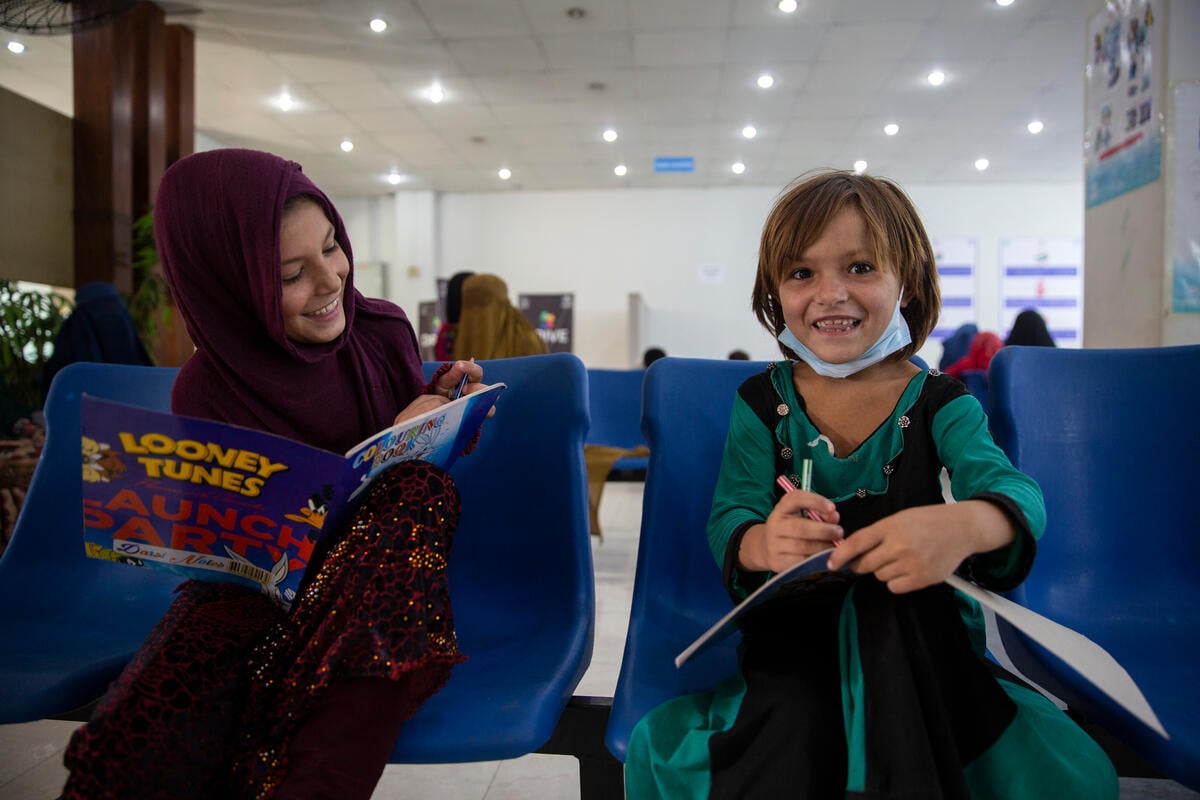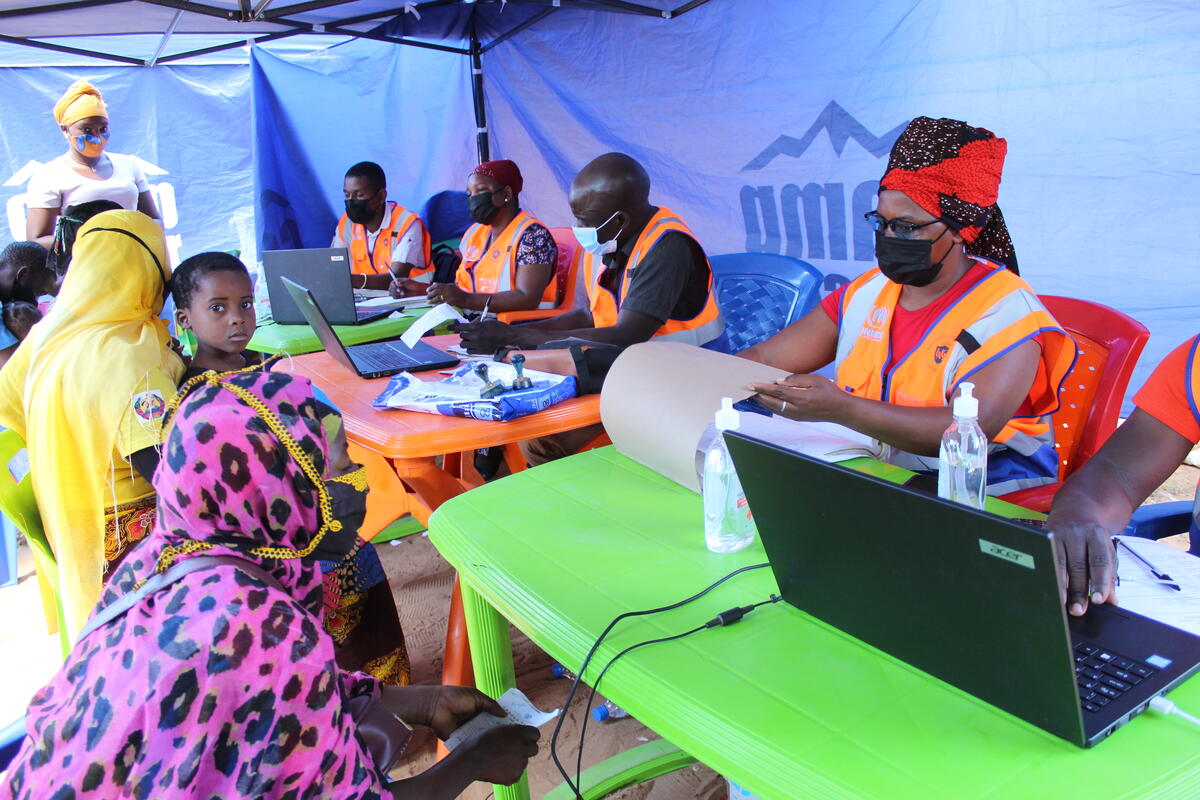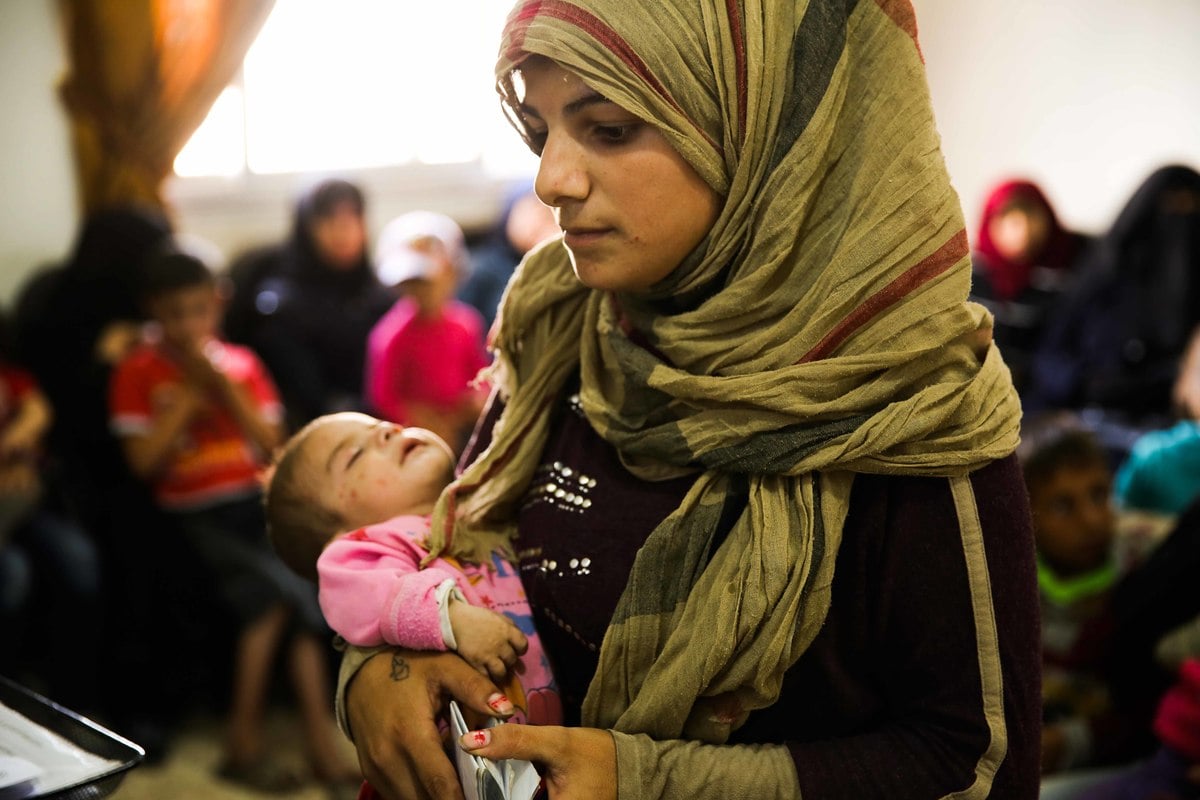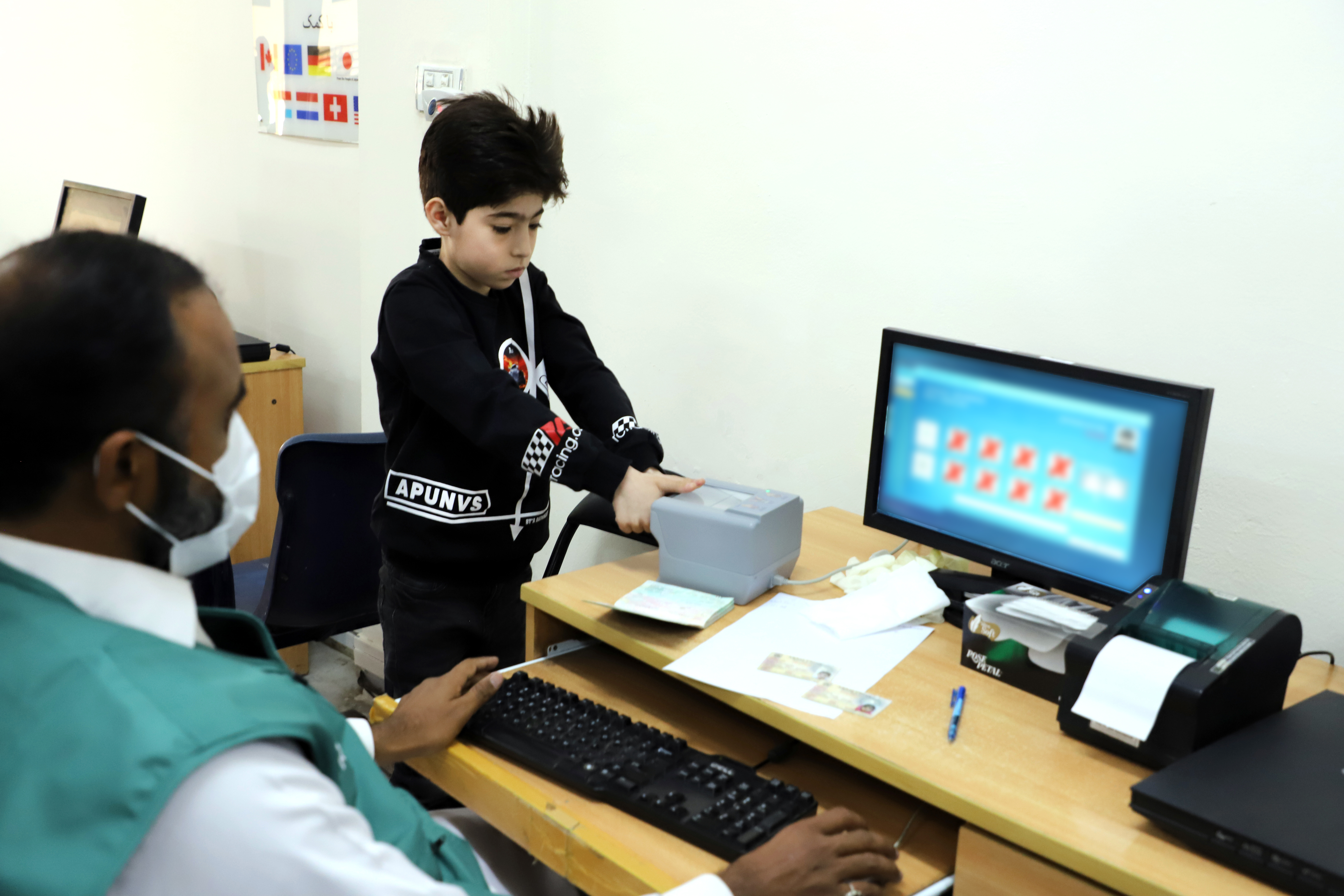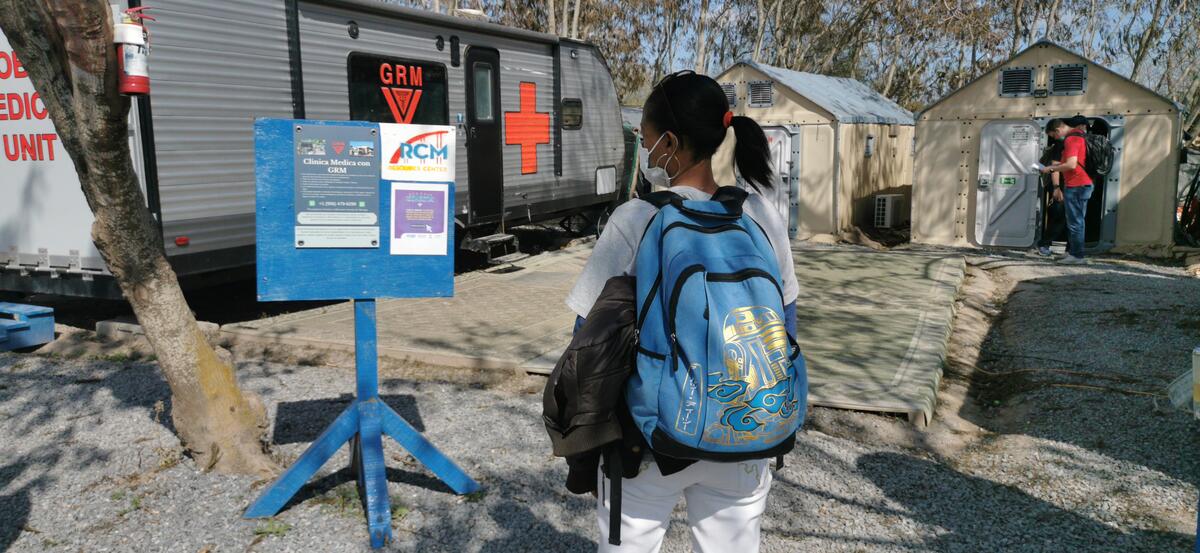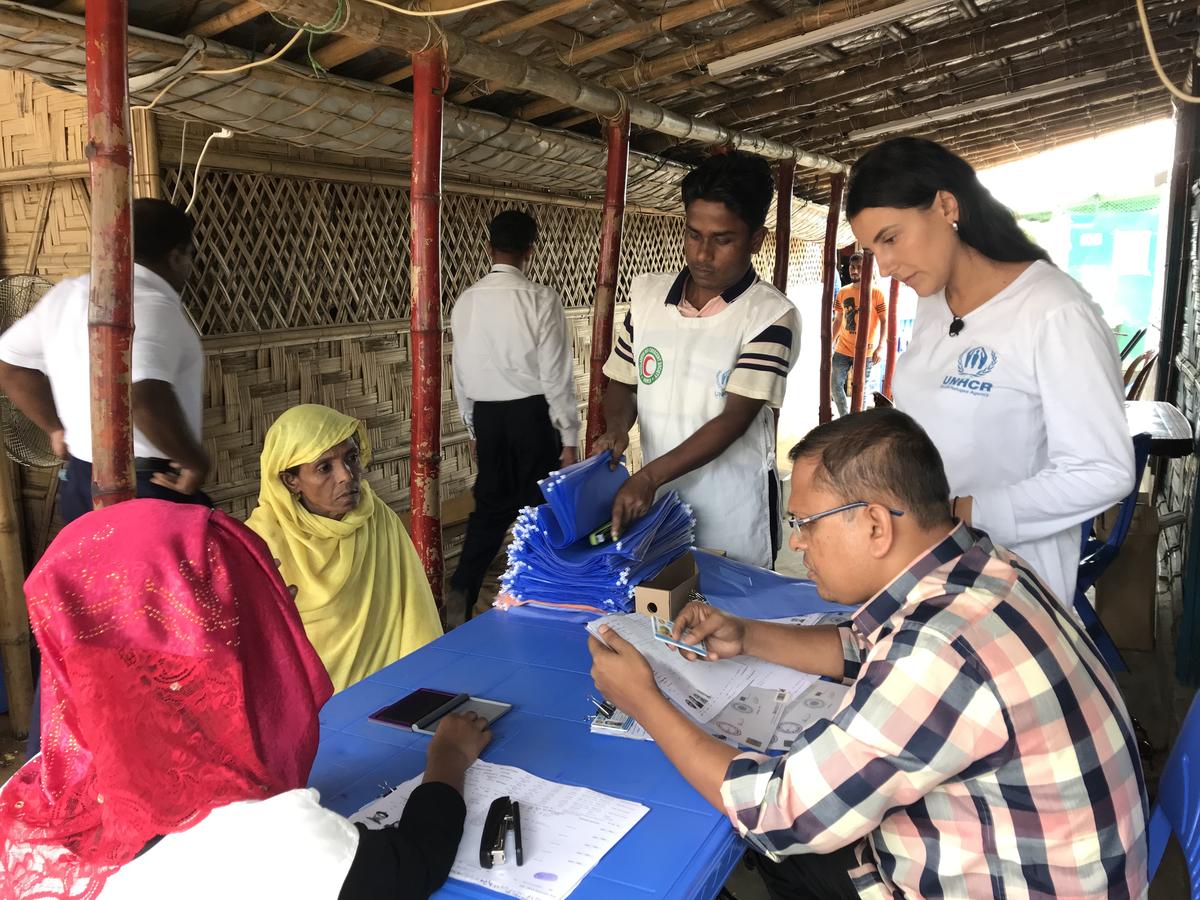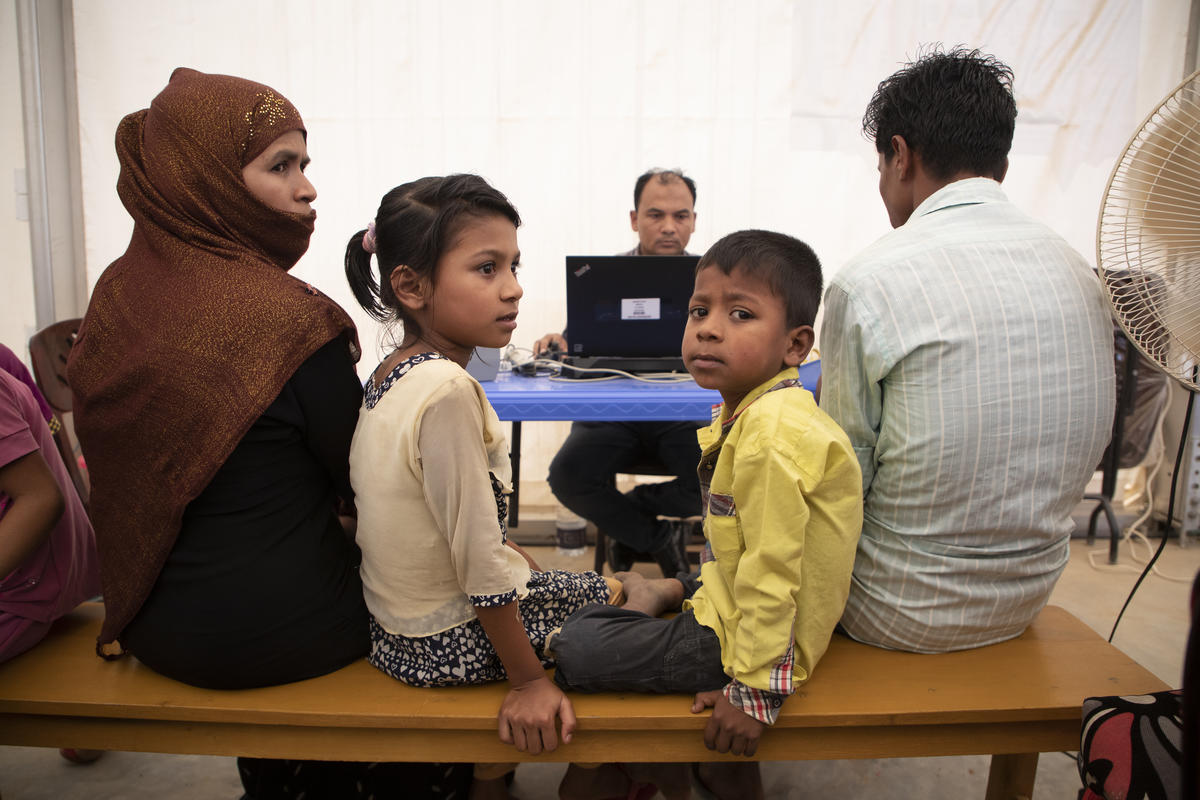Verification exercise of Sudanese refugees in Chad proceeds well
Verification exercise of Sudanese refugees in Chad proceeds well

GUEREDA, Chad, November 2 (UNHCR) - The recent murder of Chadian refugee official Michel Mitna badly shook UNHCR staff, but they are determined to honour his memory by completing a verification exercise that he helped organize for quarter-of-a-million Sudanese refugees in eastern Chad.
The operation, aimed at boosting protection and assistance for the refugees, began in March and has been conducted by UNHCR and its partners, including the government, in eight of the 12 camps run by the UN refugee agency in the east. Once the last four camps have been done by the end of the year, UNHCR will have a clearer idea of the exact number of refugees and their specific needs.
Mitna was the representative of Chad's official refugee commission in the eastern Chad town of Guereda. He was shot dead on October 24 by unknown assailants after visiting the Kounoungou Camp, where he had been helping UNHCR's verification teams.
As a mark of respect, the UNHCR staff in Kounoungou stopped working for a day. But the next morning, they were up at dawn as usual and worked until 7pm, re-registering and interviewing refugees, and updating databases for the government and UNHCR.
It's a major operation involving many UNHCR staff in tough environmental, climatic and security conditions. "We moved the entire verification team to the refugee camp. The logistics to prepare this were quite challenging," said Lamine Diop, UNHCR's Guereda-based refugee security liaison officer.
In Kounoungou, the refugee agency has had to provide tented accommodation for up to 100 local and international staff. "We need to transport food and water for them, organize basics like showers and latrines . . . We usually don't get a break during the day and we work under extreme conditions," Diop explained. "But we are all highly motivated and living under such circumstances for two weeks is bringing us very close as a team," he added.
"Most of the refugees came in late 2003 and early 2004 from Darfur [in Sudan]," explained UNHCR Field Assistant Cherif Moussa, who sat before a computer in Kounoungou and fed information into a database. "We registered them back then, but after five years in the camp, it's crucial for us to know how many refugees we have as well as the real needs of the sick, elderly and other vulnerable refugees," he said, adding that data on deaths and births was also recorded.
Around him in Kounoungou, babies cried as their families waited to be interviewed by the team. Over a two-week verification period, the refugees are called in by their camp neighbourhoods. They are interviewed and photographed.
"We also do speak with the children, even small ones. They often help us to understand the family structure better," Moussa said, adding that the exercise also turned up Chadian locals who registered as a way to get assistance.
At the end of the exercise, refugees will immediately be issued with updated ration cards and later given a government-issued refugee ID card. Many refugees say this documentation makes them feel safe and protected, and the verification exercise appears to be supported by the people in the camps.
"We have been well informed by UNHCR and our community leaders on why we have to participate in this exercise," noted Asmina, a 23-year-old refugee from North Darfur. "It is in our own interest to let the humanitarian workers know how many we are and what we need. . . I think everybody here in the camp is willing to participate."
With the information gathered, including the refugees' places of origin in Darfur, the persecution they endured, the circumstances under which they fled, family size, daily activities and living conditions, UNHCR will be able to provide much more targeted assistance, especially for children and abused women.
Meanwhile, Moussa is so engrossed in his work that he does not have time for lunch. "This is my fourth verification exercise," he revealed. "I still find it fascinating. It's tiring, but there's nothing more rewarding than getting to know our beneficiaries in depth."
By Annette Rehrl in Guereda, Chad

